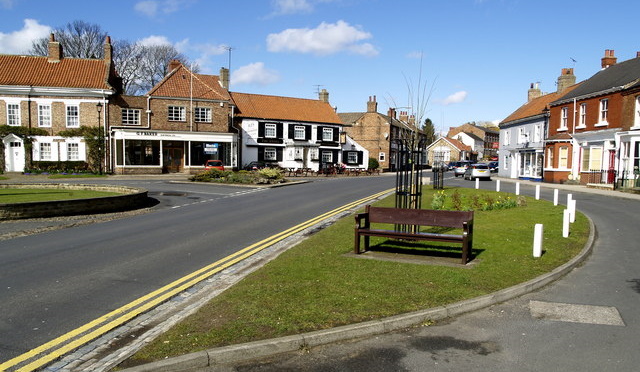
Plans for new community networks to be formed to help fill the void left by the abolition of district and borough councils are to be piloted in Easingwold.
The proposal to introduce community networks is at the heart of North Yorkshire Council’s pledge to ensure local priorities and challenges are dealt with as effectively as possible.
Council chiefs have described the networks as the “engine room” of social and economic change which will identify the priorities of communities across England’s largest county.
However, opposition councillors say they have serious reservations about the plans for the unelected and unfunded bodies.
If the approach is approved, the unitary council says it will work closely with town and parish councils, public and voluntary sector partners, businesses and communities so that local issues drive decision-making and action via the networks.
They would include North Yorkshire Council members and receive support from senior council officers, but they would be independent of the authority and would be responsible for developing forward action plans centred on a specific area’s priorities.
North Yorkshire Council’s leader, Cllr Carl Les, said: “While North Yorkshire Council is now the third largest council in the country and covers the largest geographical area of any local authority nationally, we are committed to being the most local, too.
“The networks will mobilise communities, unleashing energy and ambition and giving people a stronger voice to tackle those issues that mean the most to them.”
About 30 partnerships are set to be introduced and centred around market towns and their surrounding areas. Members of North Yorkshire Council’s executive will meet on Tuesday, May 30, to discuss how to implement the proposed scheme.
North Yorkshire Council’s executive member for stronger communities, Cllr David Chance, said: “It is recommended that these partnerships should be phased in, with an initial roll-out of five to trial the approach.
“The pilot areas would cover Easingwold, Leyburn and Middleham, Ripon, Sherburn-in-Elmet and Thornton-le-Dale and the surrounding rural area. These initial pilots are due to help us shape the model for the community networks as they are set to be introduced across the county.”
The community networks are due to operate independently and would have the opportunity to elect their own chair. While they would not have devolved budgets, the networks would be supported to explore funding opportunities through sources such as the UK Shared Prosperity Fund.
Cllr Nigel Knapton, who represents the Easingwold division on North Yorkshire Council, said: “I am really pleased that Easingwold is planned as one of the pilot areas, as this is such an important project to make sure that the voices of local communities are heard.
“There have already been meetings with the town council and its members are fully supportive, and we will reach out to the wider community to help develop the community networks model if the plans are approved.”
Officials say work was undertaken between the former county council and the seven district and borough authorities, which merged to form North Yorkshire Council at the start of April, to create the model for the community networks.
It is hoped that they will build on existing relationships and partnerships between the public, private and community and voluntary sectors, including the close working arrangements that were developed during the Covid-19 pandemic.
Cllr Les said: “Support was offered throughout the crisis by what became known as Team North Yorkshire, with public agencies working alongside community support organisations, faith groups, local groups and volunteers as well as businesses and parish and town councils.
“This showed the strength of communities across North Yorkshire at such a difficult time, and we hope to build on all the good work that was undertaken during the pandemic.”
But speaking earlier this year Independent group leader Councillor Stuart Parsons claimed the community networks would have “no power to make decisions or determine anything”.
He said: “How these organisations are supposed to have any impact is beyond me.
“For example, if a community network was to make a recommendation to increase bus services the unitary council’s executive could just turn round and say it can’t afford it. There’s nothing for these networks to have any bite.”
The concept of community networks was a focus for the Let’s Talk conversation which was staged last year in the biggest public engagement of its kind ever undertaken in North Yorkshire.
One of the elements of the Let’s Talk campaign was centred on how the new council will best serve the public and work at a local level.
People were asked about the planned geographical areas for the community networks, and 65 per cent of responses – which equated to 2,565 replies – agreed the proposals felt right for their community.


Be the first to comment